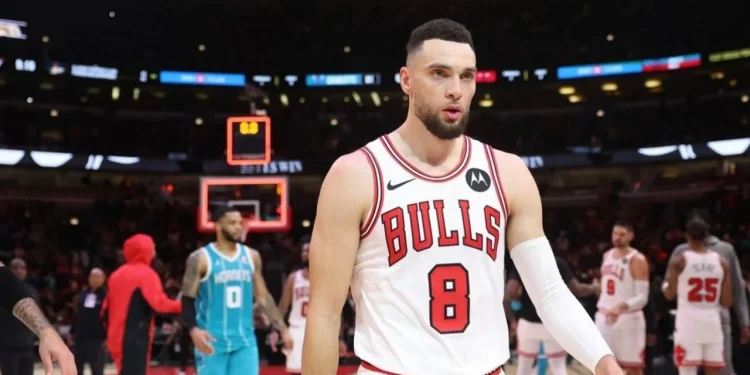The Chicago Bulls’ recent decision to lower their asking price for two-time All-Star Zach LaVine marks a significant shift in their trade strategy, potentially altering the team’s dynamics and prospects. With LaVine’s scoring prowess and star power, understanding the implications of this move is crucial for both the Bulls and interested teams.
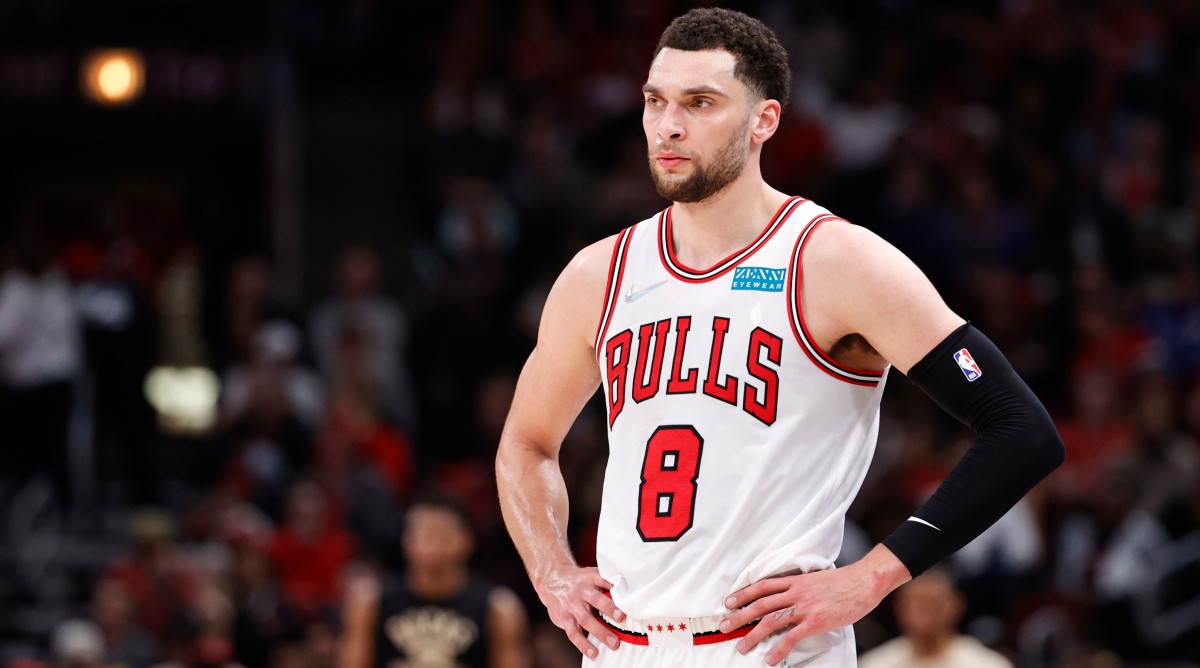
Zach LaVine: A Star’s Diminished Shine
Zach LaVine, once renowned for his electrifying performances, has seen a noticeable decline in his output, which has affected his valuation on the trade market. Despite a stellar career where he was known as one of the most dynamic scorers in the NBA, LaVine’s recent seasons have been marred by injuries and inconsistent play.
Limited to just 25 games last season, he posted an average of 19.5 points per game—his lowest since 2018. This downturn in performance comes at a time when his salary is set to increase significantly, from $43 million in the 2024-25 season to a potential $48.9 million player option in 2026.
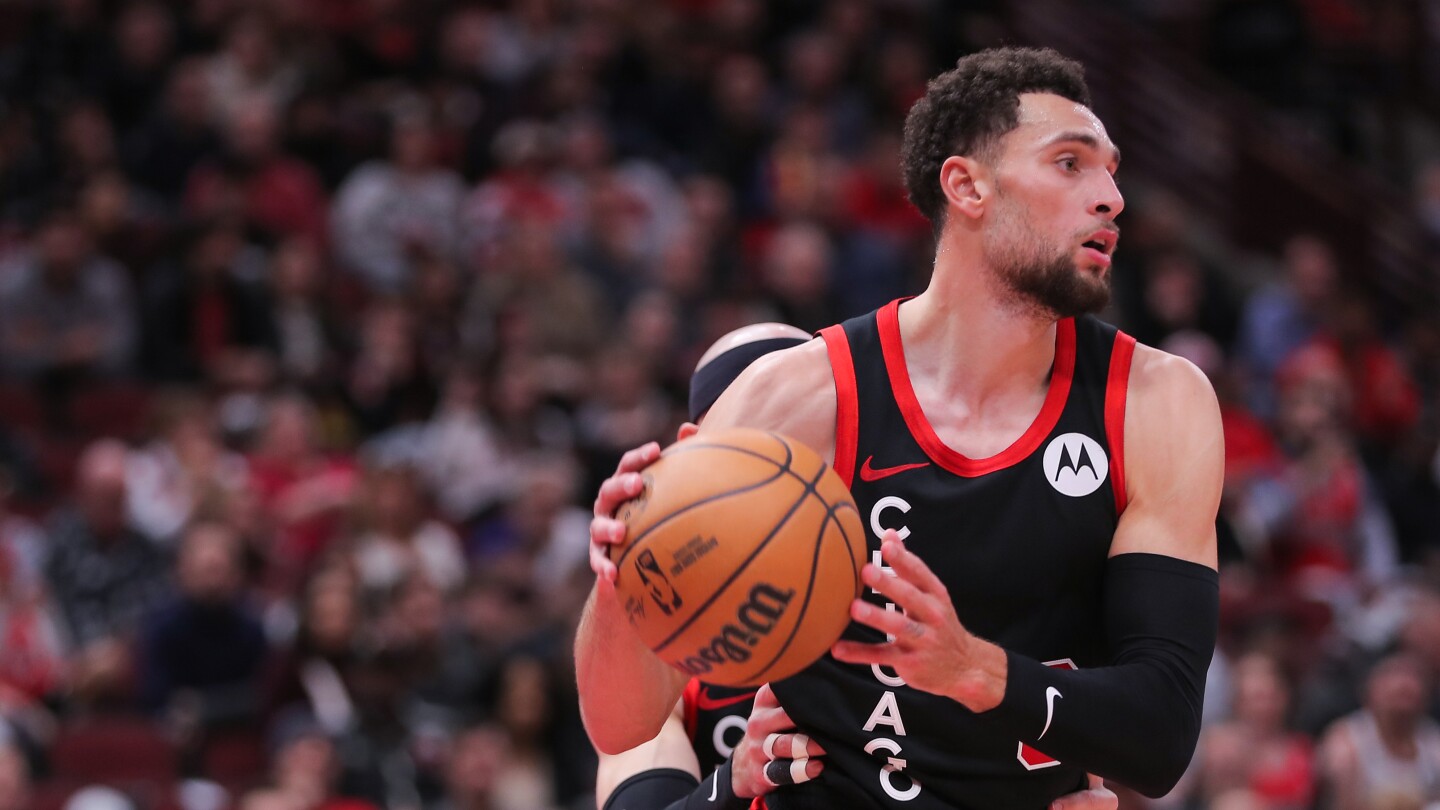
Chicago Bulls’ Changing Strategy
Chicago’s readiness to adjust their demands signals a strategic pivot. Initially seeking All-Star level talent or first-round picks in exchange for LaVine, the Bulls are now reportedly open to more varied, potentially less lucrative deals.
Bulls insider K.C. Johnson emphasizes the evolving nature of this situation: “I do get the sense both sides are motivated to make something work this offseason… I’ve reported before what their asking price was—and I sense that it has dropped significantly.”
This shift could be seen as a response to LaVine’s decreased on-court impact and the financial implications of his contract. By lowering their asking price, the Bulls seem to be acknowledging the challenges in trading a high-salary player who hasn’t recently performed at an All-Star level.
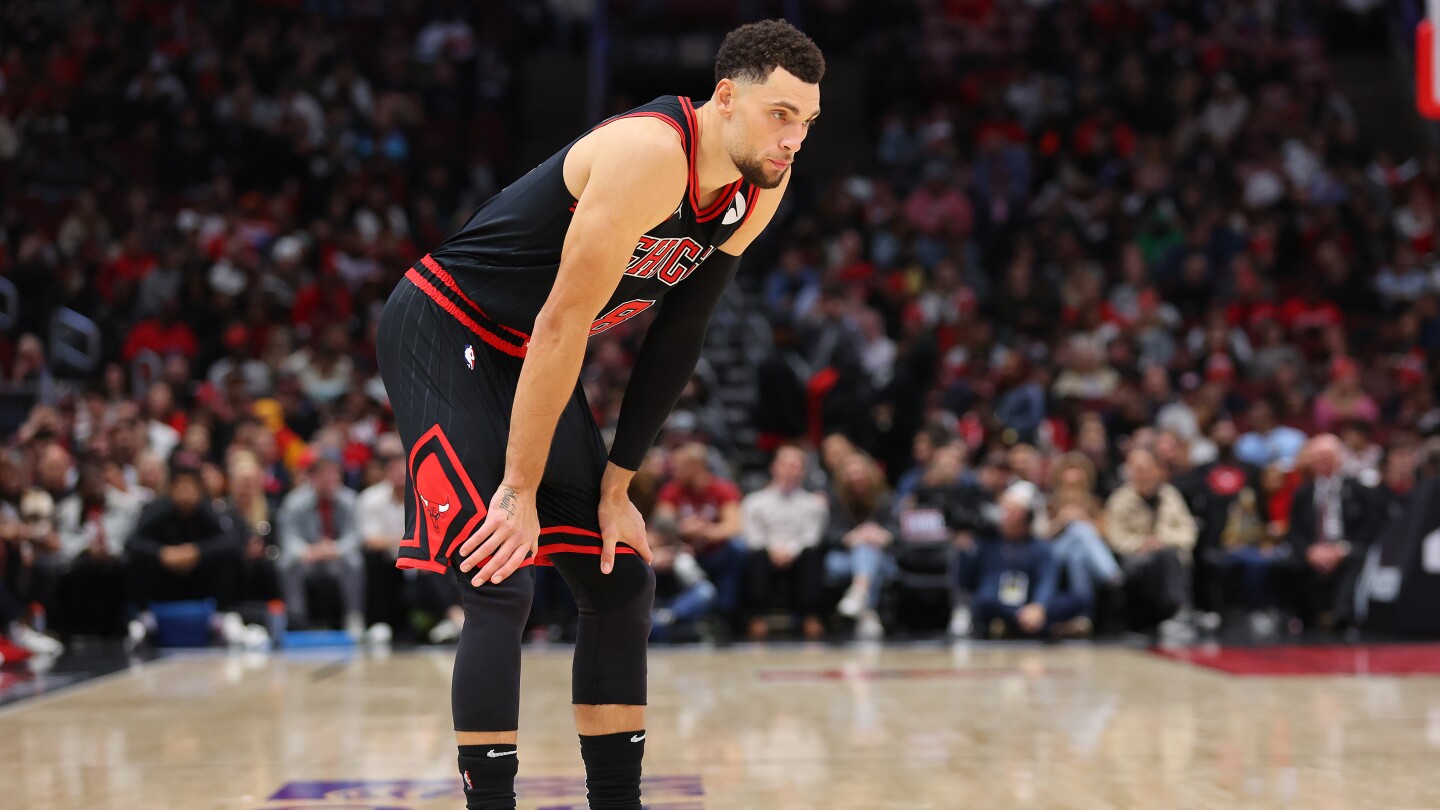
Trade Prospects and Market Impact
Despite his struggles, LaVine remains a coveted player for teams looking to boost their scoring capabilities. Known for his 38.2% accuracy from the three-point line and a career average of 20.5 points per game, he can be a valuable asset for a team needing an offensive spark. Johnson’s insight sheds light on the dynamics at play: “This is like a relationship that has run its course.
Both sides have remained very professional to this point, and I expect that to continue. But the desire from both sides to make a change has grown.”
The lowered trade value of LaVine not only impacts the Bulls but also stirs the NBA market, potentially offering other teams a chance to acquire a proven scorer at a more reasonable price. This situation exemplifies the delicate balance teams must maintain between player performance, financial commitments, and strategic team building.
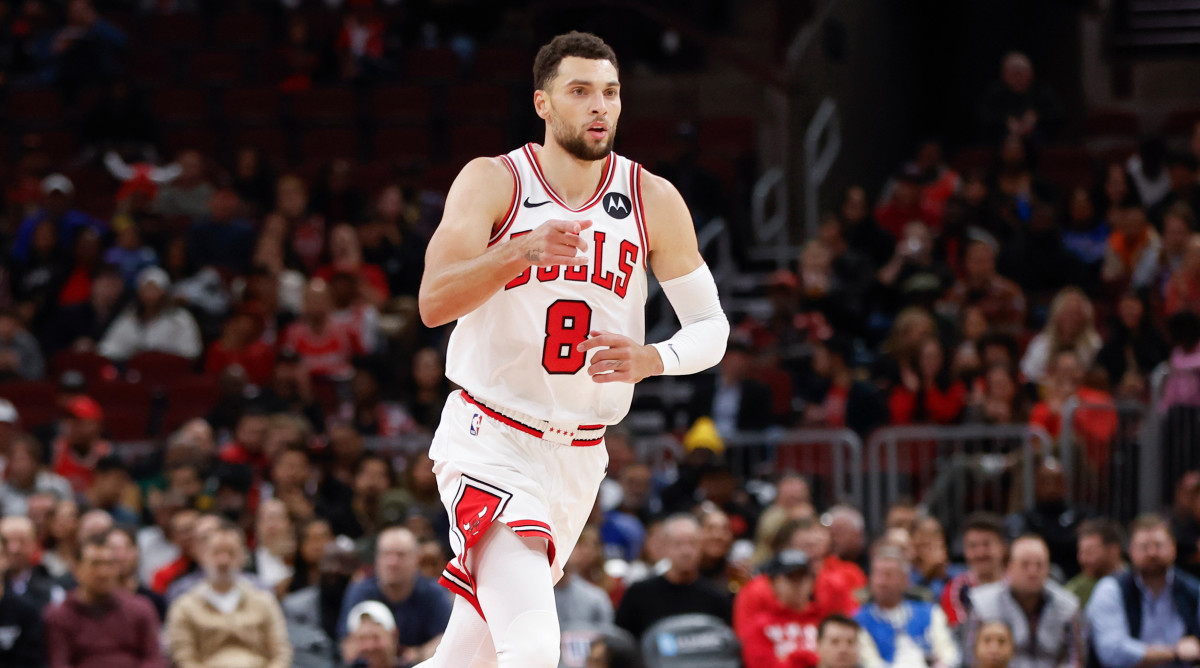
As the NBA offseason approaches, the Zach LaVine saga will be a key storyline to watch. The Chicago Bulls’ decision to lower their asking price reflects broader themes of adaptability and strategic recalibration in professional sports management. How this trade scenario unfolds will be pivotal for the Bulls’ future and could set a precedent for how teams manage star players in similar predicaments.
Source: Sportsnaut


